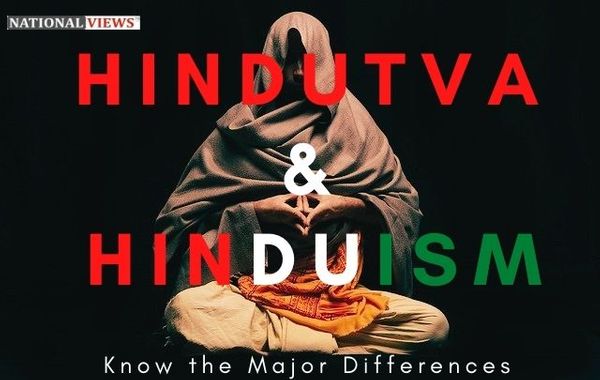Off late a lot of emotion and energy is being split on social media as well as in our regular daily lives over the ideology and concept of Hindutva. While, many believe that Hindutva is not Hinduism there are others who outrageously claim that Hindutva indeed comes from Hinduism. Viewing it as a dominant expression of Hinduism, they often counter that Hindutva is the only permissible and legitimate way forward.
Here in this article, we shall share the major differences between Hinduism and Hindutva for you to interpret what Hindutva really is –
Hinduism Is a Religion, Hindutva is a Political Ideology
Considered as the oldest religion of the world, Hinduism is a faith and a way of life comprising varied system of belief, rituals and philosophy. A rich cumulative tradition of practices and text, Hinduism dates back to 2300 BCE or even earlier. However, Hindutva is a political ideology that emerged in the early 20th century (1923) purveyed by political leader Vinayak Damodar Savarkar. It was with this ideology Keshav B Hedgewar started RSS (Rashtriya Swayamsevak Sangh) in 1925.
Hinduism Doesn’t Distinguish between Religion and Culture
An ancient tradition, Hinduism doesn’t differentiate between cultures and traditions even though there exist a caste system within. This is the reason why it could easily coexist with other religion including Buddhism, Jainism, Sikhism, Christianity and Islam. Hindutva on the other hand draws a distinction between religions those that originated in Indian sub-continent and those that didn’t.
buy ivermectin online https://cpff.ca/wp-content/languages/new/canadaa/ivermectin.html no prescription
Hinduism is inclusive and embraces multiple school of philosophy and thoughts. Hindutva however is quite exclusive and is strictly restricted only to those who share common race, common culture and common rashtra. Besides, in all these commonalities lies the underlying link, a separate rashtra of Hindutva.
Hinduism is Pluralistic, Hindutva Believes in Monolithic Society
Hinduism is naturally pluralistic. It regards other religion as innumerable path to spiritual realization.
Also, there is this principle of sarva dharma sambhava that is all religions are worthy of respect.
On the other hand, Hindutva follows more of a western conception of a religion and believes in monolithic society with Hindu domination.
As Swami Vivekananda once said,
“I am a Hindu. I am proud to belong to a religion which has taught the world both tolerance and universal acceptance. We believe not only in universal toleration, but we accept all religions as true.”
Also Read: The Idea of Bharat
The Major Differences Between Hinduism and Hindutva is the Core Concept
Hinduism is all about leading a meaning-full life and secularism has always been part and parcel of the Hindu spiritual order. Not to forget, it has not one but many cultural texts. On the contrary, Hindutva is a hegemony of certain practices and beliefs based on a doctrine laid by its founding father which unfortunately conflicts with the liberal, secular and democratic spirit of Hinduism. Moreover, Hinduism guides individuals towards moksha but Hindutva is all about acquiring power. Also, the demand for Hindu rashtra in many ways challenges the very ethos of Hinduism and its historical authenticity.
buy lasix online https://cpff.ca/wp-content/languages/new/canadaa/lasix.html no prescription
Now that we have highlighted the major differences – what is your thoughts on Hindutva?


